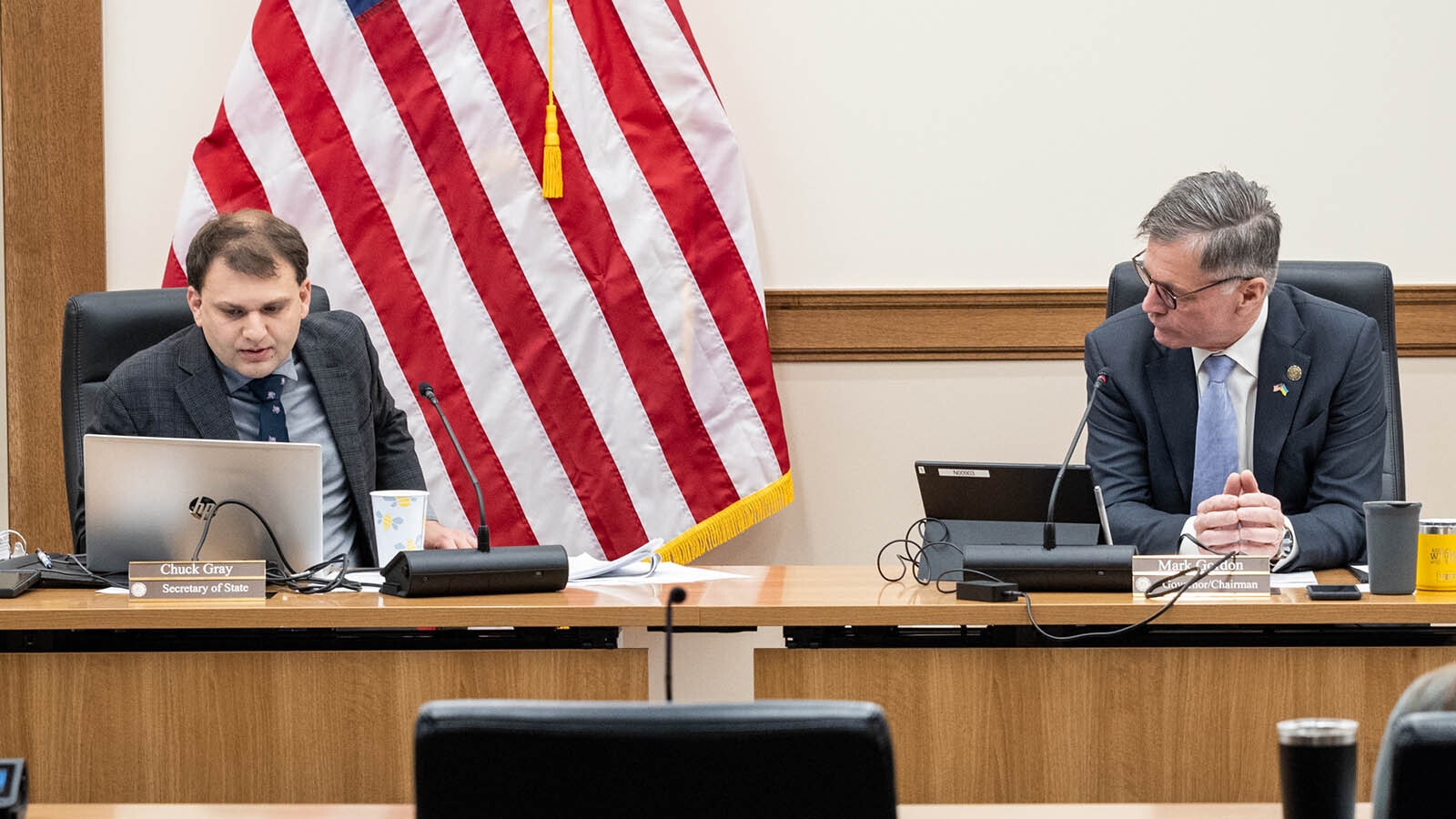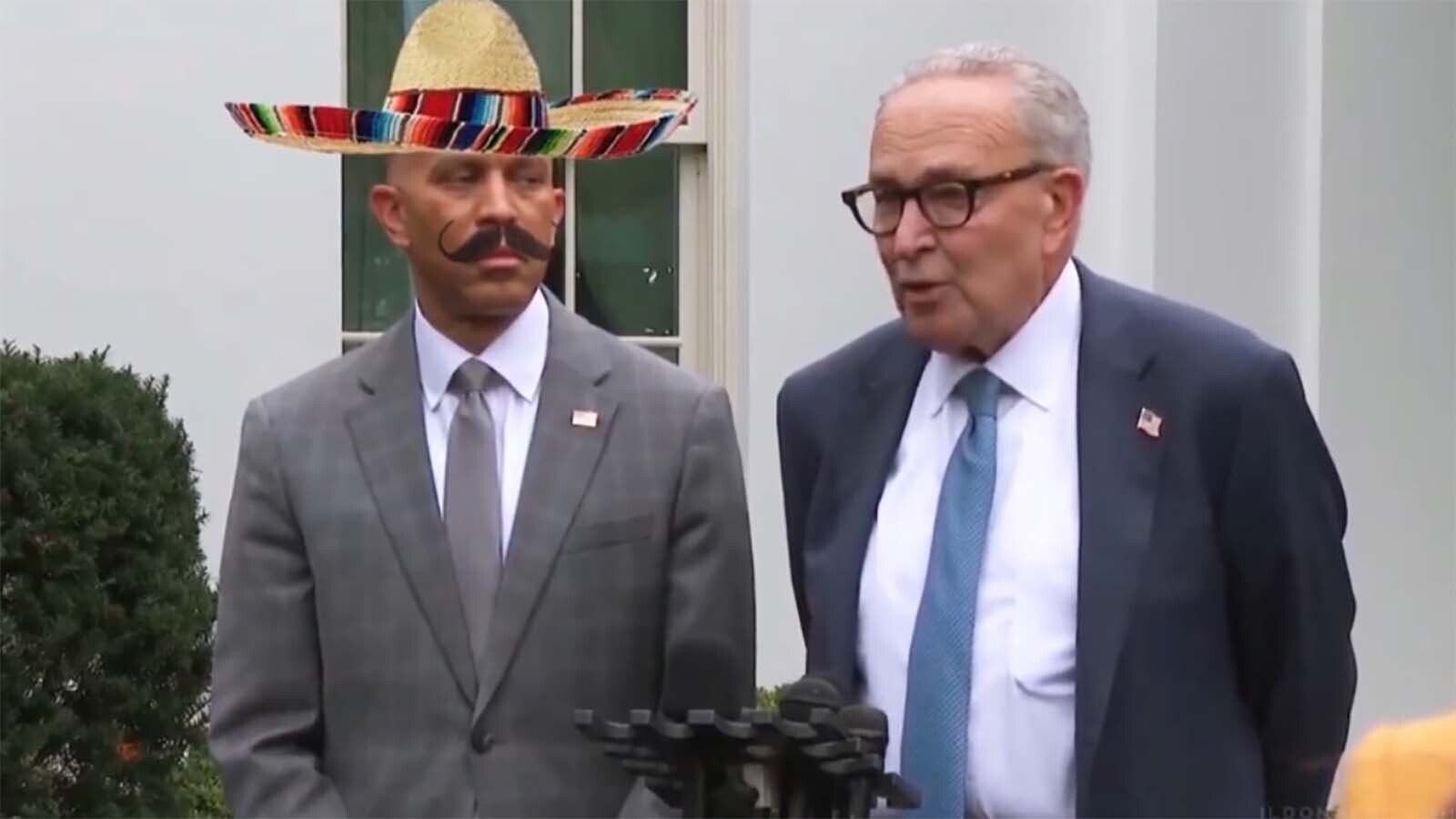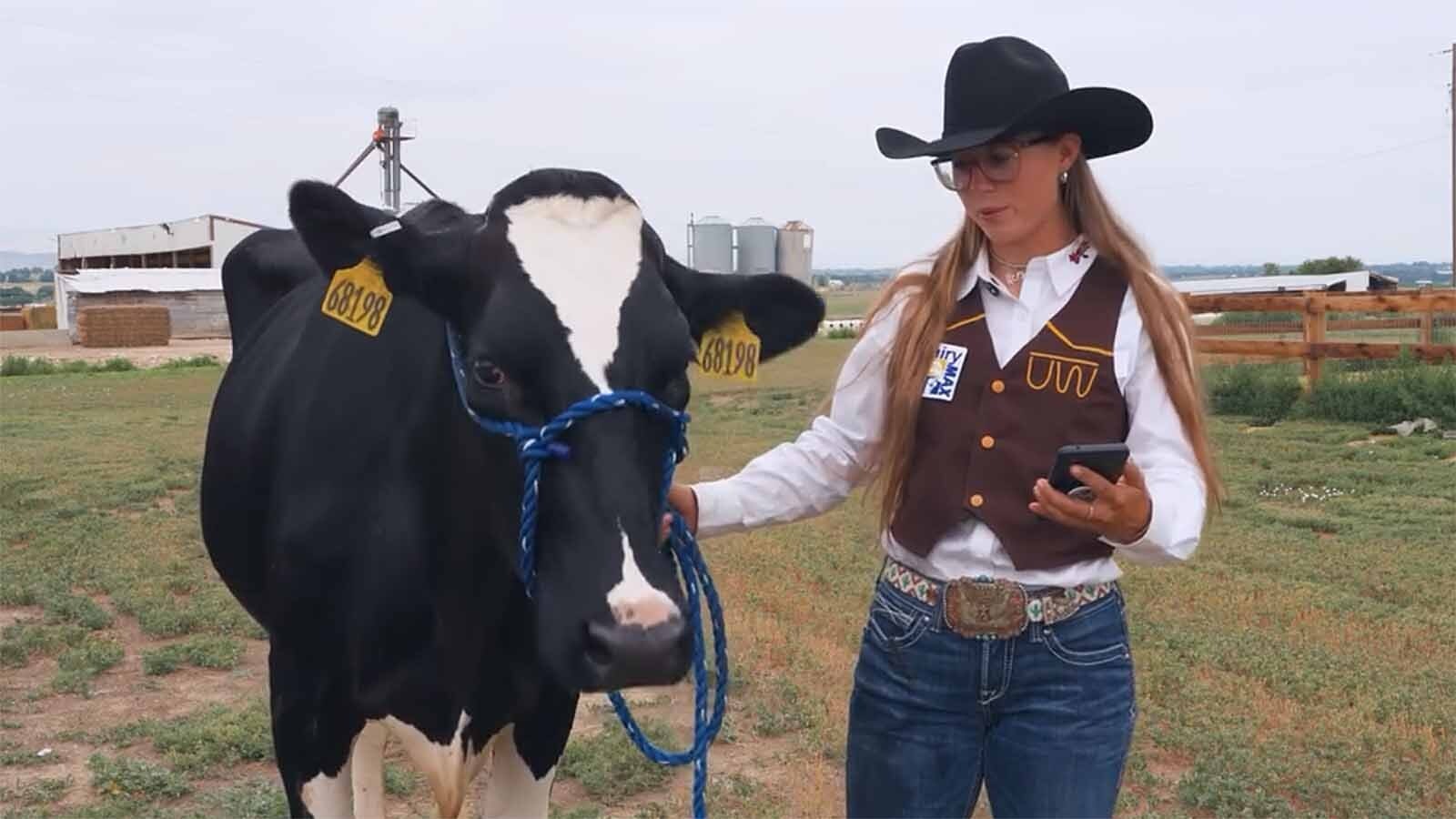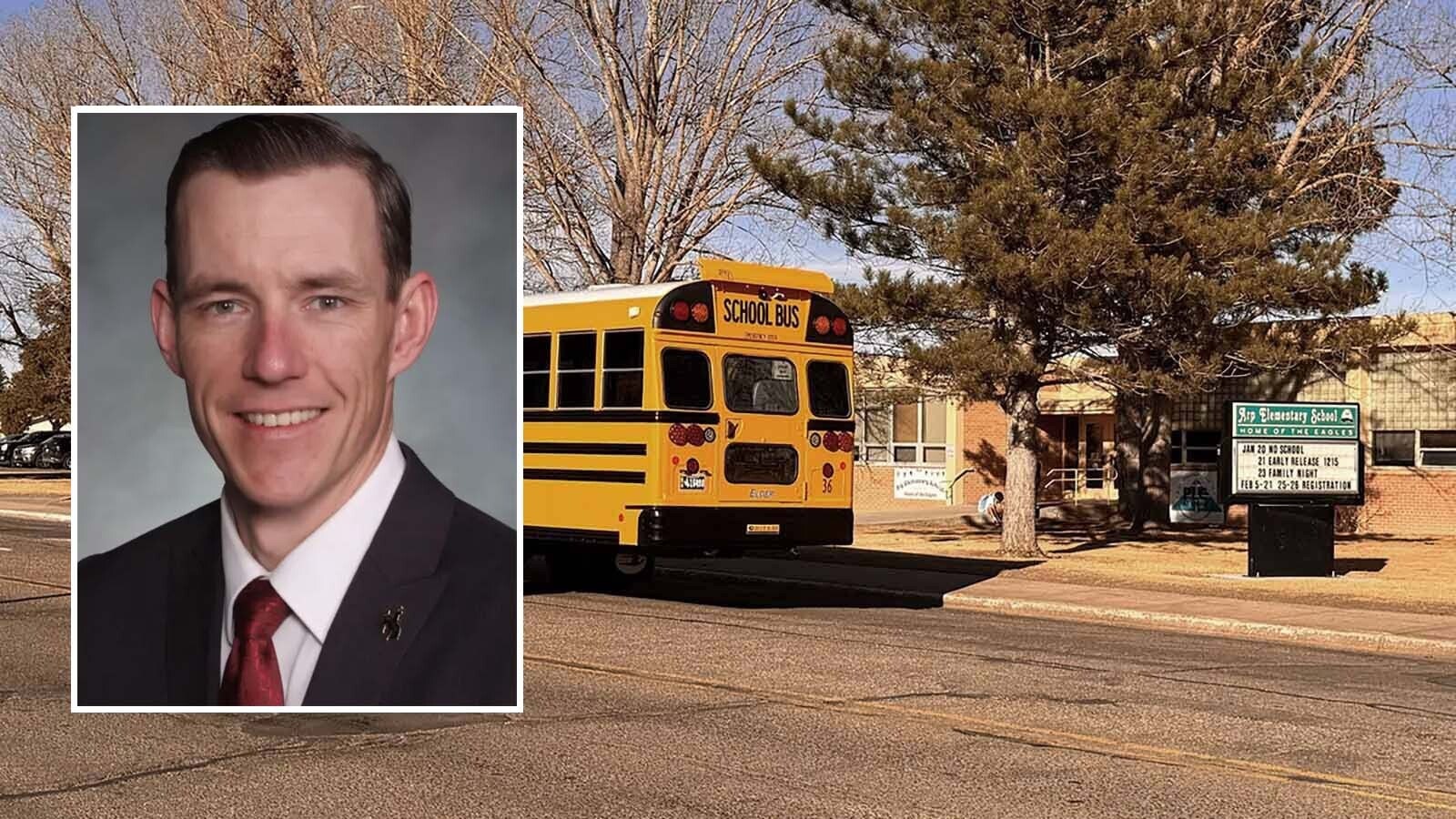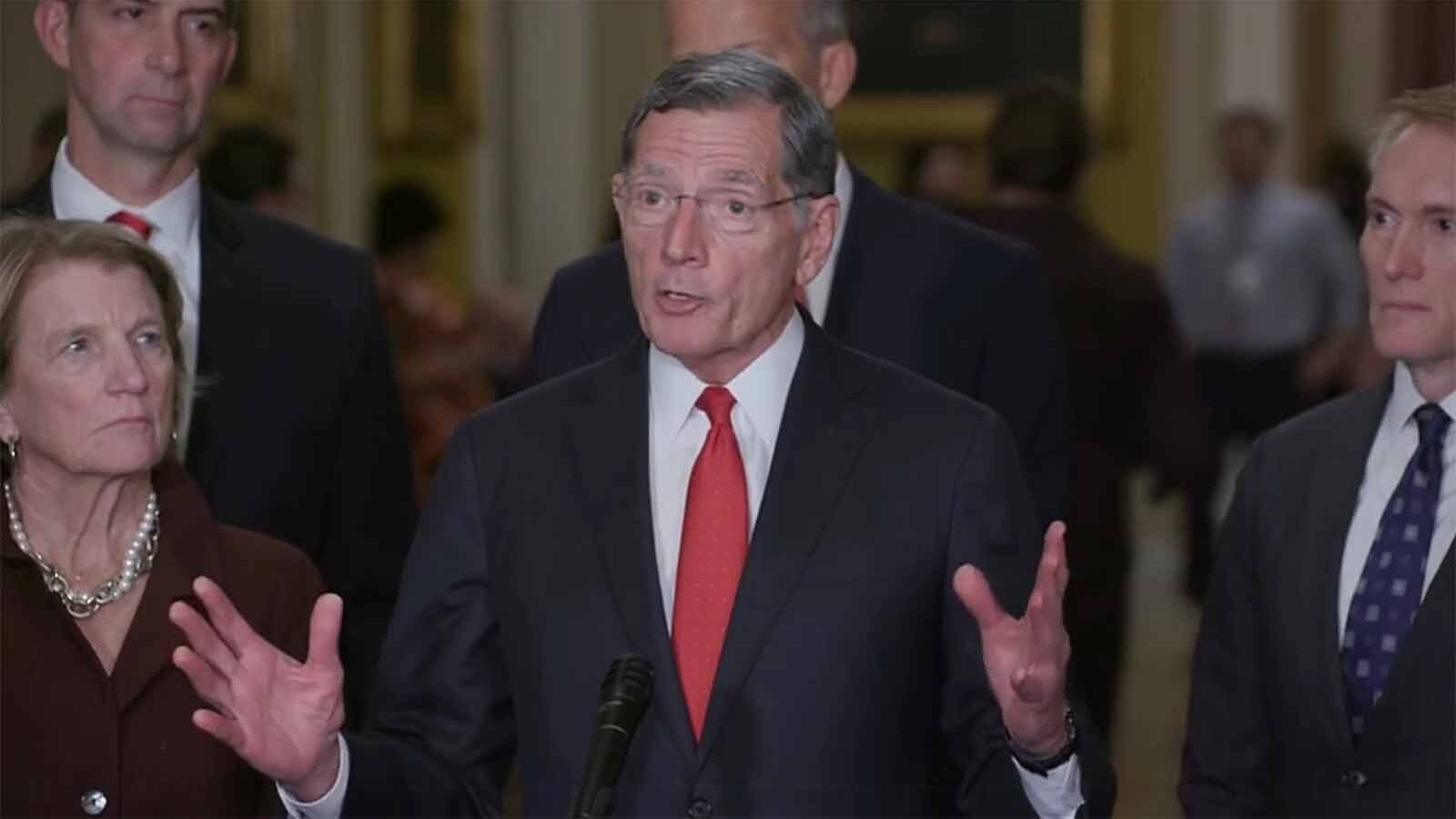A question posed at a political rally in Casper on Sunday about whether Gov. Mark Gordon could run for a third term has people asking if he could legally do that.
Secretary of State Chuck Gray responded that he believes the answer is no, and if Gordon were to run for a third term, he won’t certify his campaign.
“State law is very clear that the governor is subject to the term limits initiative passed by the people of Wyoming,” Gray said. “I will not certify him for office for a third term.”
When asked if the governor is planning or considering running for a third term, Michael Pearlman, a spokesperson for the governor, had no comment.
“The governor is focused on the work of Wyoming, he’s focused on what he was elected to do,” Pearlman said.
But he was more open to responding to Gray’s remarks.
“The governor is focused on his job and is not on the ballot this year,” Pearlman said. “The secretary should be focused on this year's election.
“The secretary is also showing his inexperience, as he has not even been through his first canvassing board.”
Gray said he found this response “disturbing” and “revealing.” He believes the governor doesn’t engage properly on issues like term limits, which Gray has attempted to address in the Legislature before.
“I was asked a direct question and I answered it,” Gray said of his answer at Sunday’s political rally. “Rather than dither, delay, waffle and provide unclear answers, as the governor frequently does, I answered the question clearly by providing what Wyoming law requires.”
History
The initiative Gray referenced was passed by Wyoming voters in 1992, putting term limits on state public officials.
“I respect and appreciate the will of the people to put this into place,” Gray said. “Our laws have to mean something. It is deeply troubling that the governor appears to take offense to the fact that I’m following the law.”
That was subsequently overturned by the Wyoming Supreme Court for members of the Legislature in 2004 and then overturned again in 2013 for the positions of secretary of state, treasurer, superintendent of public instruction and auditor. The Supreme Court did not address the governor position at that time.
“Because nobody was challenging the subsection that applies to the governor, the court did not invalidate that subsection,” said Cheyenne attorney Bradley Cave, who won the 2013 lawsuit.
State Sen. Cale Case, R-Lander, said former Gov. Matt Mead, who was in office at the time, should have entered into the lawsuit so the Supreme Court could address the issue.
A plain reading of the law says that Gordon is ineligible to run for a third term in 2026. W.S. 22-5-103 states that by the end of term of office, a governor cannot serve eight or more years in a 16-year period, which can be enforced by the secretary of state or any other authorized official in the state.
This law came about as a result of the 1992 initiative, former Secretary of State Max Maxfield told Cowboy State Daily.
“(As) soon as I understood that it was an extra requirement with term limits, that’s when I decided to go to court,” he said.
It was Maxfield who filed the 2013 lawsuit, in which he was represented by Cave. Maxfield said he only filed it because he wanted clarification of a law he believed was unconstitutional, a determination he believes was given foundation by the court’s 2004 decision.
Maxfield only served two terms and said he never intended to run for a third. If he had, he would’ve likely needed the law overturned.
“It was unconstitutional and I felt as the chief election officer I couldn’t just tolerate something that’s unconstitutional,” Maxfield said.

In The Law, But …
There is no mention of term limits anywhere in the Wyoming Constitution.
To make an amendment to the state Constitution, a three-step process must be initiated.
First, a bill must be crafted for an amendment proposal. That bill must be approved by a two-thirds majority in each chamber of the Legislature, which can be vetoed by the governor. Last, the amendment has to be approved not just by a majority, but a majority of the total number of voters who cast a vote in the election.
Case said these hurdles are a necessary component of democracy and protect society as a whole from mob rule and emotionally-driven decisions.
“It protects the minorities from the tyranny of the majority,” he said. “It’s hard to change and it’s supposed to be.”
Cave said the governor’s term limit law is an example of how just because something is written into law doesn’t make it constitutional. Further, he doesn’t believe a governor has to be beholden to a law signed off on by a previous governor if he believes that law is unconstitutional.
“An unconstitutional statute is invalid per se,” he said. “What it requires is someone to challenge its constitutionality. People comply with unconstitutional statutes all the time because nobody challenges the constitutionality of them.”
What Would Happen?
Maxfield said if Gordon were to challenge the term limits law as it applies to the governor position, they believe it would be overturned rather quickly.
Cave said while arguing the 2013 case, he felt confident about their chances because of the court’s decision nine years before.
If Gordon doesn’t challenge the term limits law, it would likely not be until at least the second term of the next sitting governor that it would be challenged again as there would be no live controversy and possibly standing. However, Case said he would consider filing a lawsuit just to get the law clarified.
“If I have to ask for clarity I’ll probably do it,” he said.
Cave said a governor could also file a lawsuit on the matter without officially committing to running for a third term strictly as an exploratory effort.
“I don’t think that would be politically wise, but I think it would be technically, probably legally OK,” he said.
Can He Reject?
Gray argues it’s his authority to oversee certification of the state’s election ballots. W.S. 22-2-108 states that the secretary of state certifies the list of statewide candidates, other than county and precinct officers, to be nominated or elected at the election.
“Certification must be done in accordance with Wyoming law, and Wyoming law is very clear,” Gray said.
Gray doesn’t believe Gordon effectively understands these election codes.
“The section in the Election Code dealing with term limits for the governor deals with the certification of candidates on the ballot, not the certification of the election itself done after the fact by the canvassing board,” he said. “This again shows his lack of understanding of the election code that Gordon, which he also showed with the inaccurate arguments he made when he vetoed our rulemaking to stop illegal aliens from voting.”
This last jab was in reference to the governor’s veto of Gray’s proposed rules that would have put new residency requirements on certain voters in Wyoming. Gordon countered that Gray was superseding his authority by making the rules.
Maxfield disagrees with Gray’s interpretation of his powers and believes it’s the responsibility of county clerks to certify candidates.
“He’s not even had a canvassing board yet and he’s already talking about certifying and not certifying,” Maxfield said. “He’s just way out of his reach.”
Case tends to agree with this viewpoint and considers the secretary of state’s role more of a “formality” when it comes to the certification of election ballots.
“If you’re going to be an election officer, you need to look at the entirety of the law, not just the written words,” Case said.
Leo Wolfson can be reached at leo@cowboystatedaily.com.

